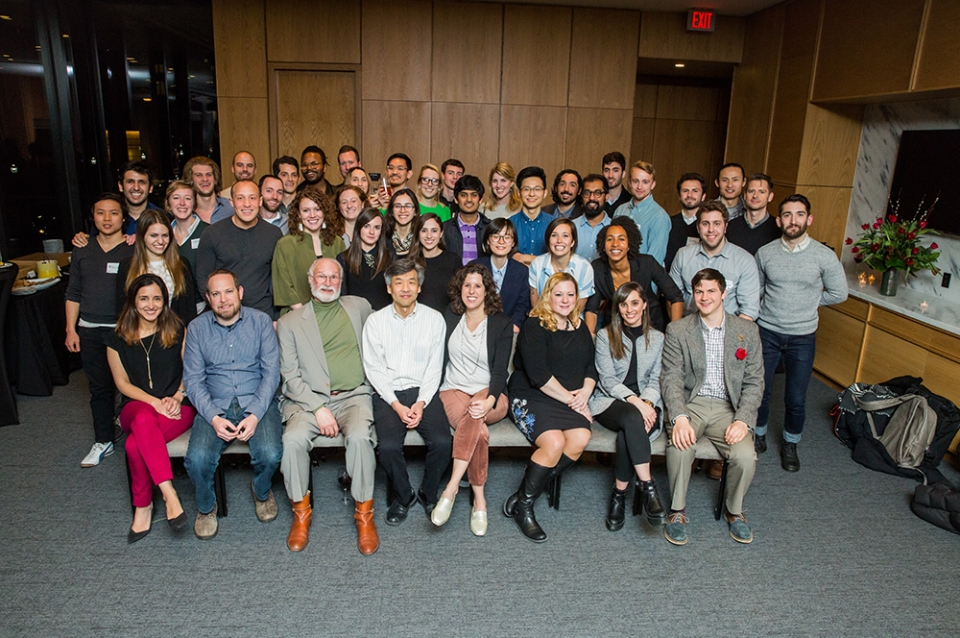March 30, 2018
Stuart Weitzman School of Design
102 Meyerson Hall
210 South 34th Street
Philadelphia, PA 19104
Get the latest Weitzman news in your Inbox
Areas
Media Contact
Michael Grant
mrgrant@design.upenn.edu
215.898.2539
Bethany Edwards and Anna Simpson were students in the Integrated Product Design program when they realized there was a product that was ripe for innovation: The pregnancy test.
They knew they wanted to create a testing product that was effective, first of all, but also sustainable and private. It had to be flushable, biodegradable, and capable of being folded up to the size of a credit card. They had to repeatedly tweak the diagnostics until they landed on a formula that could be patented. Late last year, Edwards and Simpson got FDA approval to market their product. They’ve branded it Lia: “99% accurate, 0% plastic, 100% your business.”
Edwards and Simpson recently joined their fellow IPD alumni and students to celebrate the 10th anniversary of the interdisciplinary master’s program, a collaborative effort by the School of Design, the School of Engineering and Applied Science, and the Wharton School. The program launched in 2008 with just three students, said Executive Director Sarah Rottenberg. Now it has 20 students per class, with plans to double the size of the cohort over the next few years. Around ten percent of graduates have launched their own startups, while others have gone into academia, and the majority have joined the business world, Rottenberg said. Today, IPD alumni are working around the U.S., and in Morocco, Mexico City, Ecuador, Saudi Arabia, and China.
“Anything you can imagine that can be reinvented, our students have done it,” Rottenberg said. “And a lot of those things have become real products in the world.”
The anniversary party was held at The Study hotel in University City. John Maeda, who is currently Global Head of Computational Design and Inclusion for Automattic, which owns Wordpress.com, gave a brief talk about diversity and inclusion in the design world. Maeda, a winner of both the National Design Award in the U.S. and the Mainichi Design Prize in Japan and a former president of the Rhode Island School of Design, said that in his current role, he’s trying to reorient inclusion around the design and business concerns, rather than being simply a matter for HR.
“If you use data to predict how things should be, you should always have a caucasian male with an MBA run a business,” Maeda said. “The data will prove that this is the best formula. The data shows this. But because data shows that, I believe that success is limited right now. How do we unlock success? By asking questions around: Who makes things? Who leads them to be made? And in doing so, we may find new economic opportunities.”
In a conversation with Maeda, during which audience members posed questions via text message, Edwards and Simpson said that their IPD experience had prepared them to think through not only the product design, but also the branding. The name they chose was short and “clearly feminine,” they said. It’s open-ended enough to serve other other women’s health products down the line, should they have the chance to expand. Its focus on privacy and sustainability set it apart from other brands. Edwards and Simpson said that in meetings with investors, they have learned to pivot the pitch toward the science of the product if their audience doesn’t seem moved by the more progressive aspects of the project.
The IPD program, they said, “really crystallizes a powerful framework for innovation.”


 Expand Image
Expand Image



